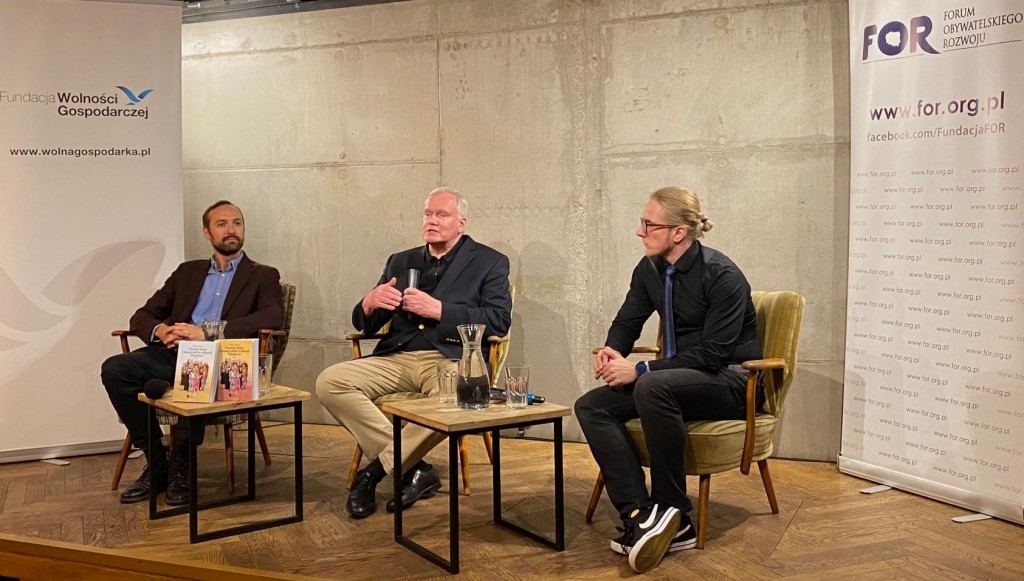RNH Academic Director Hannes H. Gissurarson presented his new book, Twenty-Four Conservative-Liberal Thinkers, in two volumes, in Warsaw 2 November 2021, at a meeting sponsored jointly by the Civil Development Forum (FOR), the Warsaw Enterprise Institute and the Economic Freedom Foundation. The meeting took place in the Freedom Lounge appropriately located in the former headquarters of the Polish Communist Party. Sharing a panel on the book with Gissurarson were Marek Tatała from the Economic Freedom Foundation and Sebastian Stodolak from the Warsaw Enterprise Institute. Stodolak also interviewed Gissurarson for the Polish newspaper Dziennik Gazeta Prawna and recorded a podcast with him. In his introductory talk, Gissurarson pointed out that in the chapter on Milton Friedman in the second volume there was a brief account of the process in which the Poles and other Central and Eastern European nations, inspired not least by Friedrich von Hayek and Friedman, returned to normalcy in the 1990s, after having had socialism forcibly imposed on them for more than forty years. Gissurarson said that the conservative liberalism he identified in his book could be encapsulated in four terms: limited government, free trade, private property, and respect for traditions.
In the lively discussion following the introductory talk Gissurarson emphasised that environmental problems usually were caused not by capitalism but by the absence of private property rights. Elephants in Africa were endangered because there were no owners to care for them, whereas privately-owned sheep in Iceland were plentiful. In just one stroke poachers in Africa could be turned into gamekeepers if their communities would be given property rights to the elephant stocks. The same applied to polluted lakes and overfished rivers: Environmental protection required protectors who had a private and personal interest in the maximum long-term profitability of natural resources, be they land, fish stocks, oil wells or forests. In the case of the environment, as elsewhere, the best remedy for freedom was more freedom.
Asked about the bank collapse in Iceland, Gissurarson pointed out that in 2008 the assets of the Icelandic banks were probably as good on average as the assets of banks in neighbouring countries, although the Icelandic bankers should definitely have been more cautious in expanding their activities. The difference was that Iceland was denied the liquidity assistance from the United States Federal Reserve Board which the Scandinavian countries and Switzerland received, enabling those countries to rescue banks which otherwise would have gone under, such as Danske Bank in Denmark and UBS in Switzerland. Moreover, the British government, led by Prime Minister Gordon Brown and Chancellor Alistair Darling, closed down Icelandic-owned British banks at the same time as they rescued all other banks in the United Kingdom, invoking moreover an anti-terrorism law against Iceland, a longtime friend and ally that did not even have a military of her own. Their unprecedented action was, Gissurarson suggested, motivated by their desire to demonstrate to their Scottish voters the perils of independence. Iceland’s rapid recovery after the collapse bore however witness to the soundness and success of the comprehensive liberalisation of the economy in 1991–2004.



